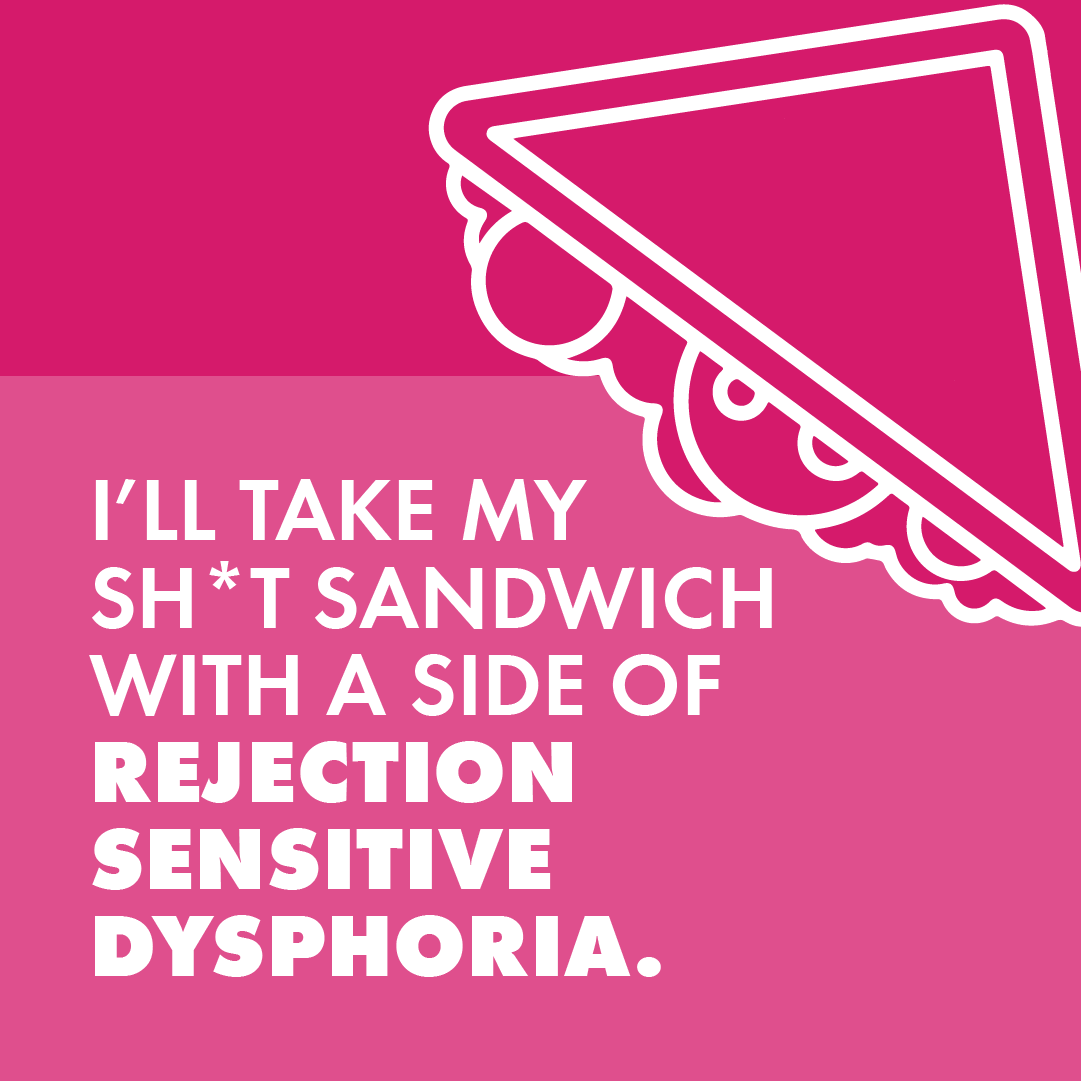Rejection Sensitive Dysphoria,
and why people with ADHD
need thoughtful feedback.
ADHD brains love to catastrophize and
assume that others think the worst
of them. Here’s why, and how you can help
save ADHD freelancers from themselves.
for clients
Written by Kirsty Ryan, July 31, 2024
I’m pretty sure that everyone’s heard of the sh*t sandwich, where you soften the blow of negative feedback by sandwiching it between 2 compliments.
Sh*t sandwich (bad) example:
Kirsty, you’re hilarious and talented. (slice of compliment bread)
You talk too much, wanna give silence a try some time? (poop sandwich filling)
It’s not that I don’t want to hear you talk, I just need a break from laughing every now and then because you’re SO bleeping funny. (slice of compliment bread with a little extra butter) 😂
Enter Rejection Sensitive Dysphoria
So you know about the sh*t sandwich, but did you know that this style of feedback can be even more important for those of us with ADHD?
One of the joys of ADHD (sarcasm) is a trait called “Rejection Sensitive Dysphoria” (RSD), and it makes us think that everyone hates us.
All of the time.
Our brains are constantly on the lookout for reasons for those we respect to be mad with us, disappointed in us, and ultimately reject us.
Fun times over here!
So when we get negative feedback from someone we respect, or, heaven forbid, the dreaded “can we talk?” Slack message, our brains overanalyze and assume that it’s over for us.
Add in freelance employment, and the fact that we can be let go from a project or client much easier than a full timer, and our RSD can have an absolute field day with seemingly constructive criticism.
Of course, it’s not your fault that our brains work this way, and as adults, it IS our job to manage our thoughts and separate emotions from facts. BUT you can help to lessen the blow a little…
How to give feedback to creative freelancers with ADHD
If you’ve got feedback to give a creative with ADHD, consider the fact that their brain is already making the person extra hard on themselves. Try to remind them that they’re doing/have done a great job, but you’ve got some feedback to make the project/their communication style/their idea even better.
By reminding them of their good qualities while giving them pointers to improve, you’re giving their brains less fodder for self punishment.
After the interaction is over, consider following up hours or days later (whichever feels appropriate) to check in and see how they’re doing. Did they understand the feedback? Do they know what to do next?
Often, just you checking in with the ADHDer will be enough to squash any thoughts of “OMG they HATE me” that they’re inevitably dealing with.
How well thought out compliments fuel those of us with ADHD
When giving compliments (even without constructive feedback), quality is better than quantity for us.
A generic “you’re the best” or “you’re so good at this” will give me a little dose of dopamine. But because this kind of feedback fairly generic, my brain has the ability to turn it into a negative - “they have to say that, they don’t really mean it” “they’re just trying to appease you”.
BUT give me a well thought out compliment or piece of feedback that shows you SEE me and the work I’m doing? That’ll power me for days or weeks. Especially if I know you know your stuff.
Some feedback I’ve been given that I STILL think about, months or years later:
- ”(Director that is famous for tearing apart creative) had absolutely no feedback on your copy, they LOVED it. You nailed it!”
- ”Every time I talk to someone about this project, all I hear is what a delight you are to work with. Keep it up!”
- “Love the visual hierarchy decisions you made here, this design is so well balanced”
Let’s wrap this sandwich up in cling film…
When it comes to feedback for a creative freelancer with ADHD, don’t feel like you have to butter us up. We’re not children, and we have worked for years with our brains and their battles - don’t feel like you have to layer on false compliments to protect our feelings.
But if you have feedback that you think could help with our RSD, it almost definitely will.
A well thought out compliment, or a sh*t sandwich delivered with care, will go a long way and you’ll get the most out of your creative inb the short AND long term.






